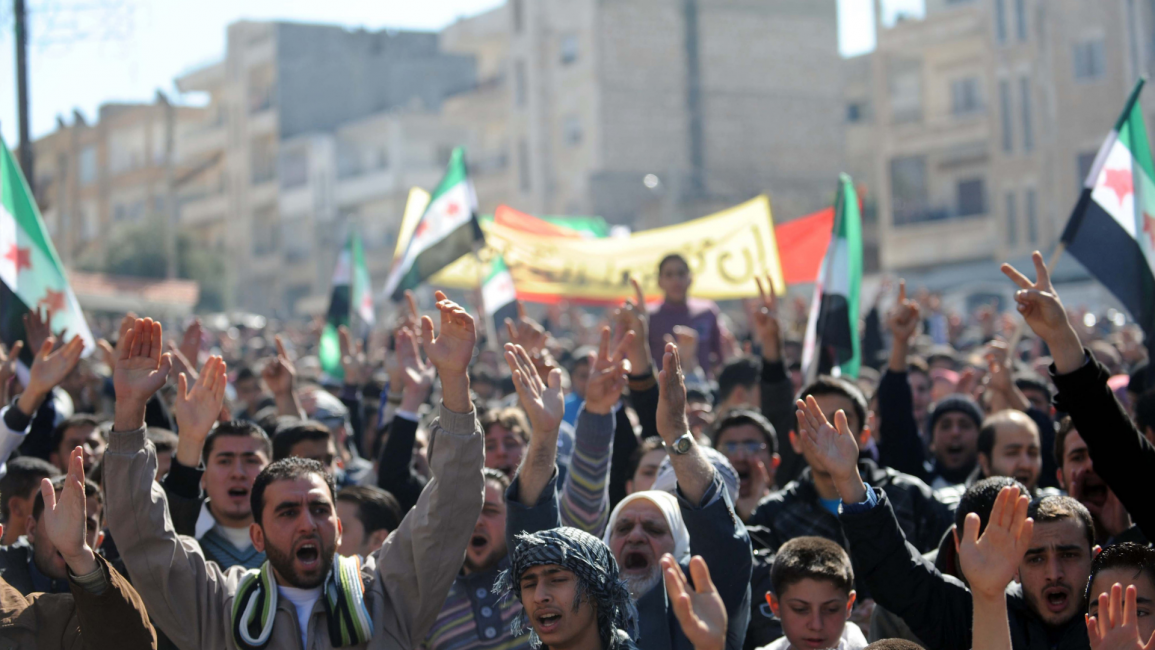Bipartisan US resolution brings little optimism on tenth anniversary of Syrian revolution
A bipartisan resolution issued earlier this week urged the US to address Syria’s humanitarian needs.
“This resolution demonstrates the bipartisan commitment in the Senate in support of the Syrian people, who have endured more trials and tribulations than most can bear to imagine,” said New Hampshire Senator Jeanne Shaheen, one of the eight members of the Senate Foreign Relations Committee (SFRC) who introduced the resolution, in a press release.
“For ten years, innocent civilians have been starved, tortured, murdered, driven from their homes and have experienced incalculable loss.
Read more: A Syrian gravedigger recounts a genocide but is anyone listening?
"Yet despite these immense sufferings, our world bore witness to the remarkable bravery of Syrians who fought back against Assad’s barbaric military assaults and risked their lives to drive ISIS terrorists from their land,” Shaheen said in a statement, noting that she has visited Syria since the conflict began.
For those who have been closely following Syria for much longer than the decade-long conflict, this resolution falls far short of what is needed to even to begin to address the humanitarian situation in Syria.
Twitter Post
|
"I think the US has turned its back on Syrians.
"Having a joint resolution pass is great, but if it does not translate into immediate alleviation to starvation and misery, it’s worthless,” Rafif Jouejati, co-founder of The Foundation to Restore Equality and Education in Syria, toldThe New Arab.
“We’ve seen this throughout the ten years. I don’t know if people have become apathetic.”
Since the outbreak of mass protests across Syria on March 15, 2011, followed by heavy-handed regime crackdowns, more than 500,000 Syrians have been killed, nearly 6.5 million have been internally displaced, and more than six million Syrian refugees are dispersed throughout the world.
The unemployment rate in Syria is around 50 percent and approximately 80% of Syrians currently live in poverty.
“Syria after ten years of civil war can only be described as an unmitigated disaster on many levels. The loss of the Golan Heights in the 1967 Arab-Israeli war used to be seared into every Syrian’s mind as the sine qua non of modern Syrian history, but no longer. For a generation of Syrians it will now be the civil war, and all of the horrors and deprivations associated with it,” David Lesch, a Middle East history professor at Trinity University, told The New Arab.
“At some point there will be something resembling peace, as it is a fait accompli that Assad will remain in power in the near term, but it will be an incomplete one for many Syrians after so many years of bloodshed and destruction,” he added.
Although the US government has repeatedly stated that it stands with the Syrian people and against the violence of the Assad regime, with which it severed ties in 2012, its intervention in Syria has been minimal compared with its past actions in other countries in the region, leading many observers to believe that Syria is not a priority for the US government.
It does, however, have an interest in maintaining some level of stability in the country, for the sake of its wider interests in the region. This limited resolution itself, is seen by some as a sign of this lack of interest or engagement.
For her part, however, Shaheen marked the milestone of the tenth anniversary of the Syrian revolution.
“This anniversary is a reminder of what is still at stake in Syria – the futures and freedoms of the Syrian people. Bringing this conflict to an end, holding perpetrators to account and implementing lasting peace must continue to be a U.S. national security policy priority,” she noted.
Brooke Anderson is The New Arab's correspondent in Washington D.C., covering US and international politics, business and culture.
Follow us on Facebook, Twitter and Instagram to stay connected



